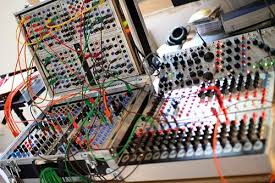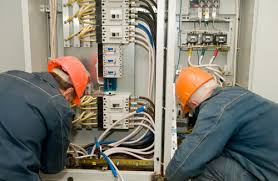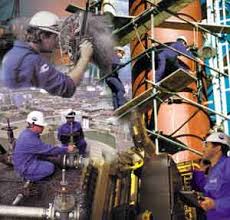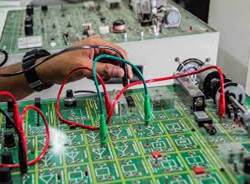Electrical Engineering
 Electrical engineering is an engineering discipline concerned with the study, design and application of equipment, devices and systems which use electricity, electronics, and electromagnetism. It emerged as an identifiable occupation in the latter half of the 19th century after commercialization of the electric telegraph, the telephone, and electrical power generation, distribution and use.
Electrical engineering is an engineering discipline concerned with the study, design and application of equipment, devices and systems which use electricity, electronics, and electromagnetism. It emerged as an identifiable occupation in the latter half of the 19th century after commercialization of the electric telegraph, the telephone, and electrical power generation, distribution and use.
Electrical engineering is now divided into a wide range of fields, including computer engineering, systems engineering, power engineering, telecommunications, radio-frequency engineering, signal processing, instrumentation, and electronics. Many of these disciplines overlap with other engineering branches, spanning a huge number of specializations including hardware engineering, power electronics, electromagnetics and waves, microwave engineering, nanotechnology, electrochemistry, renewable energies, mechatronics, and electrical materials science.
 Electrical engineers typically hold a degree in electrical engineering or electronic engineering. Practising engineers may have professional certification and be members of a professional body or an international standards organization. These include the International Electrotechnical Commission (IEC), the Institute of Electrical and Electronics Engineers (IEEE) and the Institution of Engineering and Technology (IET) (formerly the IEE).
Electrical engineers typically hold a degree in electrical engineering or electronic engineering. Practising engineers may have professional certification and be members of a professional body or an international standards organization. These include the International Electrotechnical Commission (IEC), the Institute of Electrical and Electronics Engineers (IEEE) and the Institution of Engineering and Technology (IET) (formerly the IEE).
Electrical engineers work in a very wide range of industries and the skills required are likewise variable. These range from circuit theory to the management skills of a project manager. The tools and equipment that an individual engineer may need are similarly variable, ranging from a simple voltmeter to sophisticated design and manufacturing software.
 INSTRUMENT ENGGINEERS
INSTRUMENT ENGGINEERS
Instrumentation engineers are commonly responsible for integrating the sensors with the recorders, transmitters, displays or control systems. They may design or specify installation, wiring and signal conditioning. They may be responsible for calibration, testing and maintenance of the system.
Instrumentation engineering is the branch of engineering that specialises on the principle and operation of measuring instruments that are used in fields of design, configuration of automated systems in electrical, pneumatic domains, etc.
What does an Instrumentation Engineer do?
 The required tasks are very domain dependent; instrumentation engineers typically work for industries with automated process with the goal of improving the productivity, reliability, safety, optimisation and stability. Instrumentation engineers are commonly responsible for integrating the sensors with the recorders, transmitters, displays or control systems. They may design or specify installation, wiring and signal conditioning. They may be responsible for calibration, testing and maintenance of the system.
The required tasks are very domain dependent; instrumentation engineers typically work for industries with automated process with the goal of improving the productivity, reliability, safety, optimisation and stability. Instrumentation engineers are commonly responsible for integrating the sensors with the recorders, transmitters, displays or control systems. They may design or specify installation, wiring and signal conditioning. They may be responsible for calibration, testing and maintenance of the system.
Skills Required to become an Instrumentation Engineer
All engineers are required to have strong hold on mathematics and physics. Instrumentation engineers must also possess the following skills as they find themselves in situations to solve uniquely challenging problems:
- strong communication skills
- ability to translate project needs into design development of hardware suitable for the task
- sound problem solving skills
- ability to think out of the box
Scope for Instrumentation Engineers Instrumentation
engineers may design devices like dynamometers for measuring torque, blood glucose monitors, aircraft sensors, and smoke detectors.
- They may develop electrocardiograph equipment and computed tomography scanners or may work on security systems.
- According to various reports, the above are some of the many career possibilities for instrumentation engineers.
- They also play essential role in every successful aeronautical research projects
- They find employment in manufacturing firms, defense contractors, biomedical companies, government, or work for private engineering firms
Job Opportunities for Instrumentation Engineers
Instrumentation engineers find employment in industries which improve efficiency, stability and safety of automated processes. The industrial sectors include:-
- Public/Private firms,
- R&D organizations,
- Steel plants,
- Cement manufacturing companies,
- Thermal power plants,
- Chemical companies and similar industries.








